
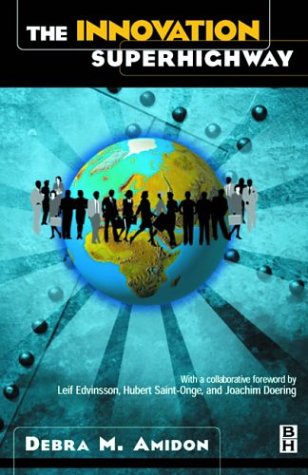
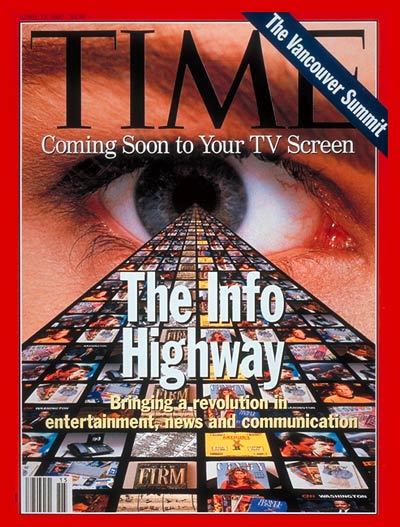
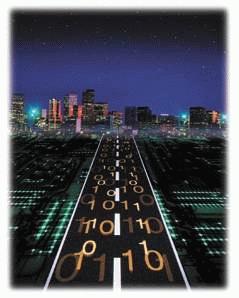
"Theory is good, but it doesn't prevent things from existing." - Freud
Why do we study history? Why should we study the history of the Internet? History did, in fact, happen, and without it we would be largely ignorant of the workings of the world and of the human animal.
Histories are stories about events.
Different histories of the same events tell different stories about those events.
Sometimes people listen to histories and base their actions on them... so histories are also about influence and power.
Sir Richard Francis Burton was an English explorer and author ("1001 Arabian Nights"). His most famous exploit is probably his dressing as an Arab and visiting [trespassing ???] the holy city of Mecca (in 1853) which non-Muslims are forbidden to enter.
Is this a story of racist imperialism and cultural insensitivity or is it a story of naive curiosity and cultural discovery? In recent critical and popular works, the explorer Richard Burton has primarily been described either as an advocate (whether consciously or unconsciously) of British imperialism or, conversely, as a sensitive observer of African culture worthy of contemporary canonization.




The Internet and the "Information Highway" comes with an emancipatory rhetoric. It is often visualized quite literally as a road. But a road to where? To the future? To Granny's? Who really knows ... and who really cares because its definately to somewhere GREAT - right?. The rhetoric and visualizations of the Internet show a place without borders, without race, without gender - a place where anything is possible.
But that is only one story.
"Despite cybercultural claims that we have moved beyond cultural and racial identity, there are particular ways in which the digital revolution participates in globalization's redrawing the lines that distinguish bodies from each other, rather than erasing those lines altogether. For all the celebration of mobility and fluidity, digital technology organizes a world economic order that thrives on a global labor pool of poor non-white people for whom "access" to many critical signifying spaces--legal, symbolic, and electronic--is diminished and even denied. . . ."
- Coco Fusco from "At Your Service"
http://www.dancingimage.com/dev/9151/htdocs/Fusco.html
The dominant story of the Internet (and many technologies) can be likened to a "black box". Not the theater.. nor the thing in airplanes, but rather the black box from science/programming jargon. In this story we have a shiny box that takes inputs and produces outputs but whose inner operations and workings are mysterious and kept hidden from the user. The results are often shiny, slick devices that we desire and lust for .. but we don't really understand where they come from or how they work. Kind of like these:
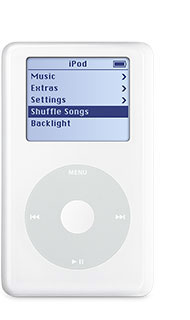 |
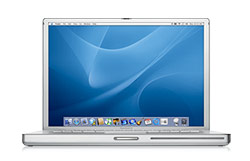 |
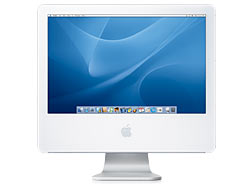 |
| "beautyshot_ipod_050223.jpg" | "step2_beautyshot_pb15_050131.jpg" | "step2_imac20_beautyshot_0804.jpg" |
[ as named on www.apple.com (just View->Page Source) Who made these? How much did they earn? What is their name? Who cares, I want it! ]
so, where did the Internet come from. Why was it developed and by whom?
The internet has been around since 1969.¬Ý Originally named Arpanet, it was created to provide uninterrupted communication to the US government in the event of a nuclear war.¬Ý Its design utilizes multiple equal nodes, allowing point-of-failures to be circumvented.¬Ý Initially only universities and research facilities could fund the supercomputers needed for this new technology.
¬Ý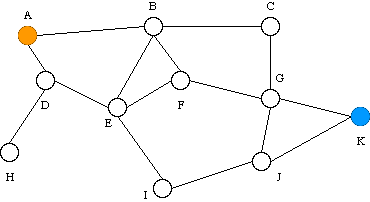
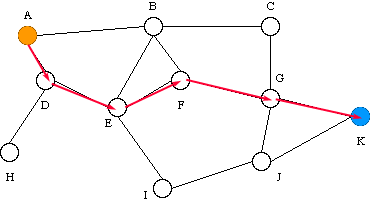
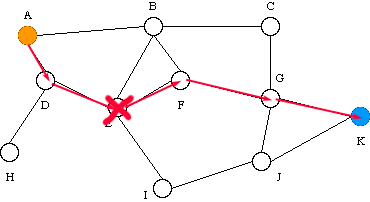
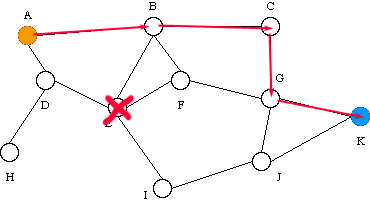
Arpanet was devised by a government agency now known as DARPA.
 DARPA’Äôs mission is to maintain the technological superiority of the U.S. military and prevent technological surprise from harming our national security by sponsoring revolutionary, high-payoff research that bridges the gap between fundamental discoveries and their military use.¬Ý- taken from the DARPA website
DARPA’Äôs mission is to maintain the technological superiority of the U.S. military and prevent technological surprise from harming our national security by sponsoring revolutionary, high-payoff research that bridges the gap between fundamental discoveries and their military use.¬Ý- taken from the DARPA website
My favorite DARPA program name: Information Exploitation Office (IXO)
DARPA scares me.
People often equate web browsers with the Internet, but in fact they are just one of the many tools that people can use to get around on the Internet. It would kind of be like thinking that there are only cars when in fact we have boats and planes and walking. That said, web browsers, are ubiquitous and mainstream and deserve some special attention. Web browsers are basically a tool for sharing files on the web [view source].
Pre-Historic
1969 Arpanet
Early Ages
1990 World Wide Web
1993 Mosaic
1994 Opera
Age of Netscape 1994-1997
1994 Mozilla - Netscape Navigator
1995 Internet Explorer
The Great Browser Wars 1997-1999
Netscape vs. Internet Explorer
Age of Internet Explorer 1999-2003
2000 Konqueror
Modern Era
2003 Safari
2005 Firefox
If you take a closer look at the names of the web browsers you might notice a strange trend. In the early days we have exited, nerdy names like Mosaic and Opera.
 mosaic
mosaic opera
opera

Then, in 1994, the first predator is unveiled: Mozilla was a predatory browser designed to beat out the popular Mosaic. (It's name is a merge of Mosaic and Godzilla) .


Then comes Netscape Navigator which shares its name with Henry the Navigator, the Portugese prince famous for his sailing expeditions along Africa's west coast. It can be argued that the voyages undertaken in Prince Henry's name marked the first sustained expansion outside Europe. He also started bring back some African natives. This is a nice way of saying imperialism and slave-trade. Ironically, Henry did not accompany any of the ships under his charge during their voyages - not unlike ourselves as we virtually surf around the globe through our arm chairs and high-speed Internet connections.

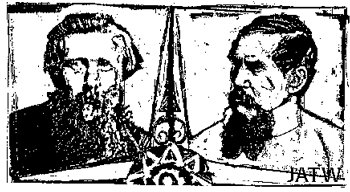
Soon after came Internet Explorer which I liken to Sir Richard Francis Burton, the English explorer mentioned at the beginning of this page who travelled into forbidden parts of East Africa. Of course there is also Sir Francis Drake, the British explorer and slave-trader who led the 2nd expedition to sail around the world. Or the famous Captain James Cook who was killed by a mob on Feb. 14, 1779, in Hawaii. [At the time, he was trying to take the local chief hostage.]

![]()
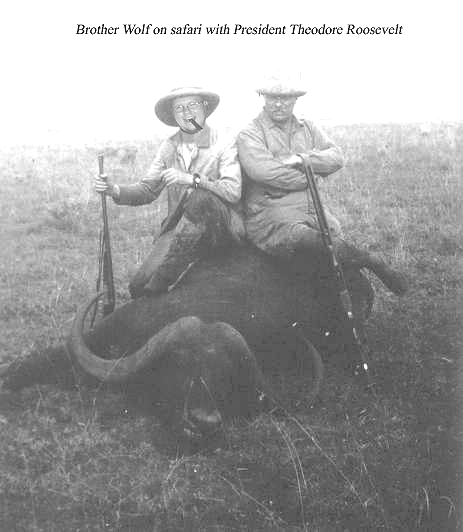
And then there is Apple's Safari based on an open source browser called Konqueror. The word safari comes from the Swahili word meaning a long journey but has more complicated associations with both big game trophy hunting (like the image above of Teddy Roosevelt) and with the tourism industry.
mosaic -> mozilla -> navigator -> explorer -> konqueror -> safari
The metaphors of colonialism, imperialism and trophy hunting that are projected onto our everyday Internet activity by these naming decisions is very problematic and goes strangely unoticed. I mean, why not Internet Hitchhiker or Netscape Pilgrimage ??? These products have been branded in a way that perpetuates imperialist modes of being in the world.


For now, at least we have Firefox - an open-source browser that so far (as of 3/2005) has a seemingly meaningless name - though still intentions of providing its users with complete mastery of the universe as indicated by the ever-present globe motif of their logo.
Many of us take new technology at face value. I believe that this is largely because it is presented as a black box for us to enjoy but not understand. We tend to consider it basically neutral and innocent, just as long ago when our countries began colonizing others, we were sure it was in the "best interest" of all mankind. Critical theory and postmodernism have brought us to understand that there are underlying assumptions in dominant discourse that limit the alternatives we consider.
Search engines greatly fall into this category. The results we get from Google we tend to think of as equaling the TRUTH. But its important to pull back the curtain and start to realize that the people who build search engines are sometimes motivated by strong agendas [ money and power ]. The algorithms that categorize the information we find in search engines are designed by real living people who have specific motivations for what they do.
try googling "information superhighway"
try googling your phone number
check out the ads in your gmail account
http://www.googlefight.com/
theyrule.net
natural selection
This tendency for us to forget that our bodies exist on the Internet is exacerbated by the scale and abstractness of the network.
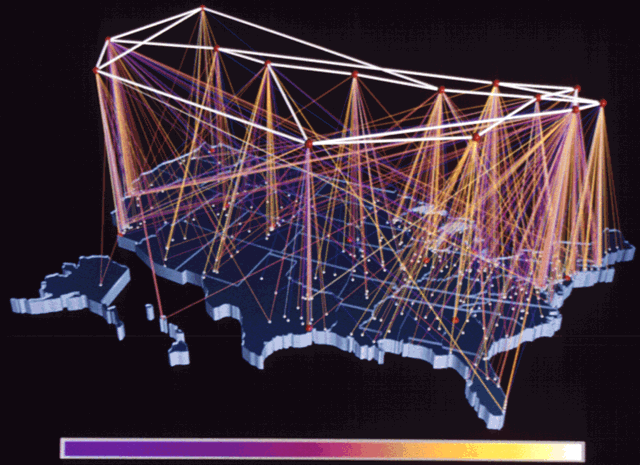
This is a visualization of a WAN. A wide area network or WAN is a computer network covering a wide geographical area, involving a vast array of computers. It has very little connection to the scale of the human body and technically most of us don't know how to operate the relevant equipment (switchers, routers, etc).
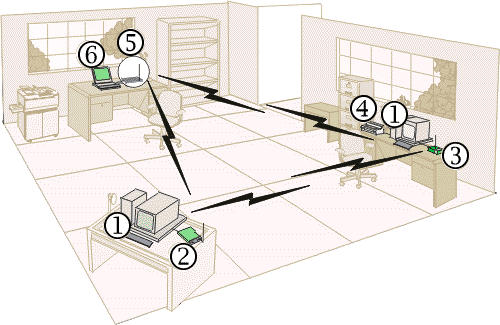
This is a visualization of a LAN. A local area network (LAN) is a computer network covering a local area, like a home, office or small group of buildings such as a college. LAN's began appearing as the price of desktop computers plummeted. The scale is something we can relate to and most of us have probably had some experience in networking our homes, sharing printers, etc. The equipment may still seem intimidating but its in the form of cables and connections that we are fairly familiar with.
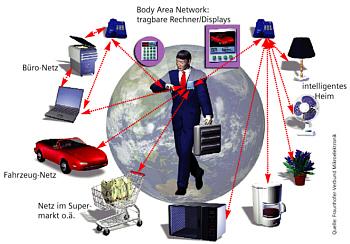
This is a visualization of a PAN. A personal area network (PAN) is a computer network used for communication among computer devices (including telephones and personal digital assistants) close to one person (a few meters in scope). This concentration of the network onto the body is rapidly changing how we think of the Internet.
Coco Fusco has observed that the Digital Age has created a desire to enable our minds to fantasmatically disengage from our bodies. But I wonder if the emergence of the personal area network is a way to start reconnecting our minds to our bodies. As a recent example we can discuss the hacking of Paris Hilton. Before Paris, networks were hacked. And even though this effected real people, unless it happened to you personally, we experienced hacking on a very abstract level. Now people are being hacked. Or maybe it was just another marketing stunt.
http://www.liquidgeneration.com/content/showMeDaContent.aspx?cid=1292
http://www.preemptivemedia.net/
http://www.msnbc.msn.com/id/6942751/


Appendix of random stuff:
The reasons the name "Opera" was chosen are several. For one, "Opera" is known as the opera all over the world. London, Paris and Moscow all have Operas, and it's one thing that has long historical roots in almost the entire world. Secondly, the Opera is associated with quality and high standards - you never hear of Opera singers who go on a drunken spree... ;-) Thirdly, the Opera is fun. (Or at least, it's meant to be for the people who don't have prejudices agains it for being snobby and upper class-only.)
So, all in all, one might say there's more thought to Opera's name than to Netscape Navigator and Internet Explorer, though I'm sure they've not chosen their names lightly either.
It's a combination of Mosaic and Godzilla. This was the codename for the project that would eventually become Netscape Navigator. At the time Mosaic was the dominant browser and they were looking to compete with it.
It's a word play on the other browsers' names. After the Navigator and the Explorer comes the Conqueror;